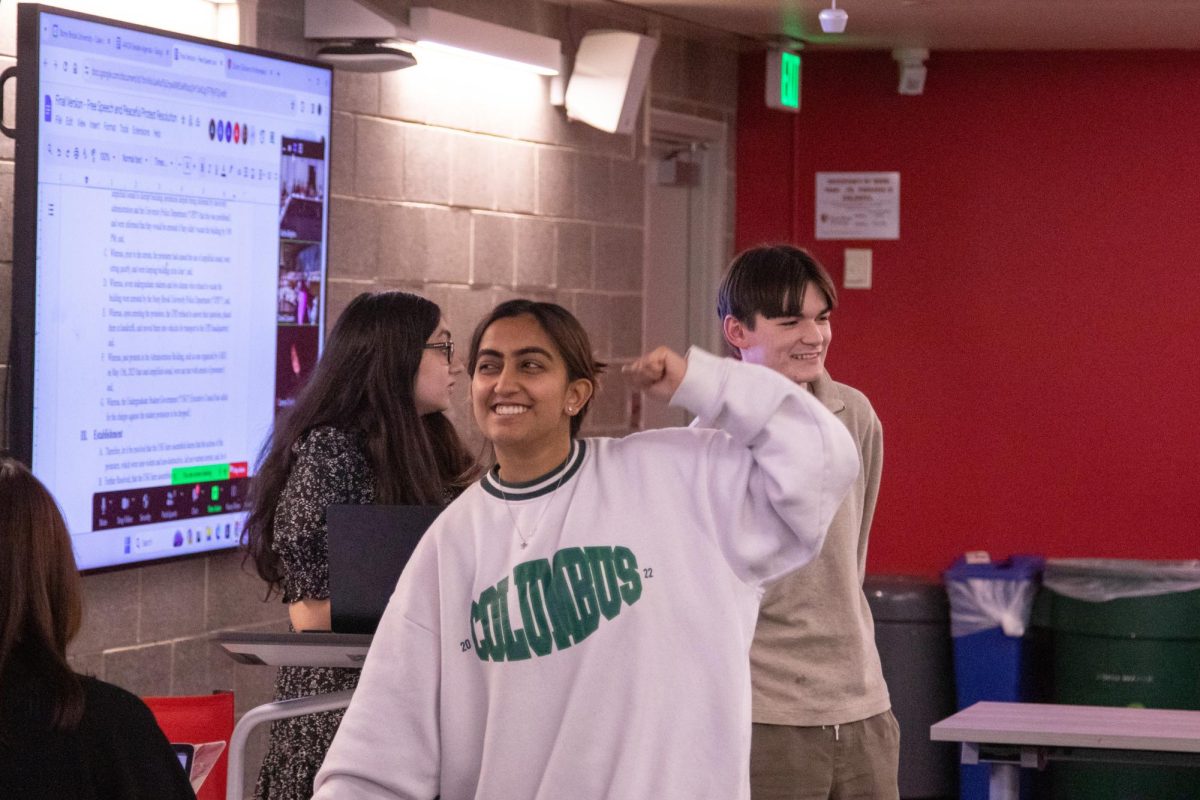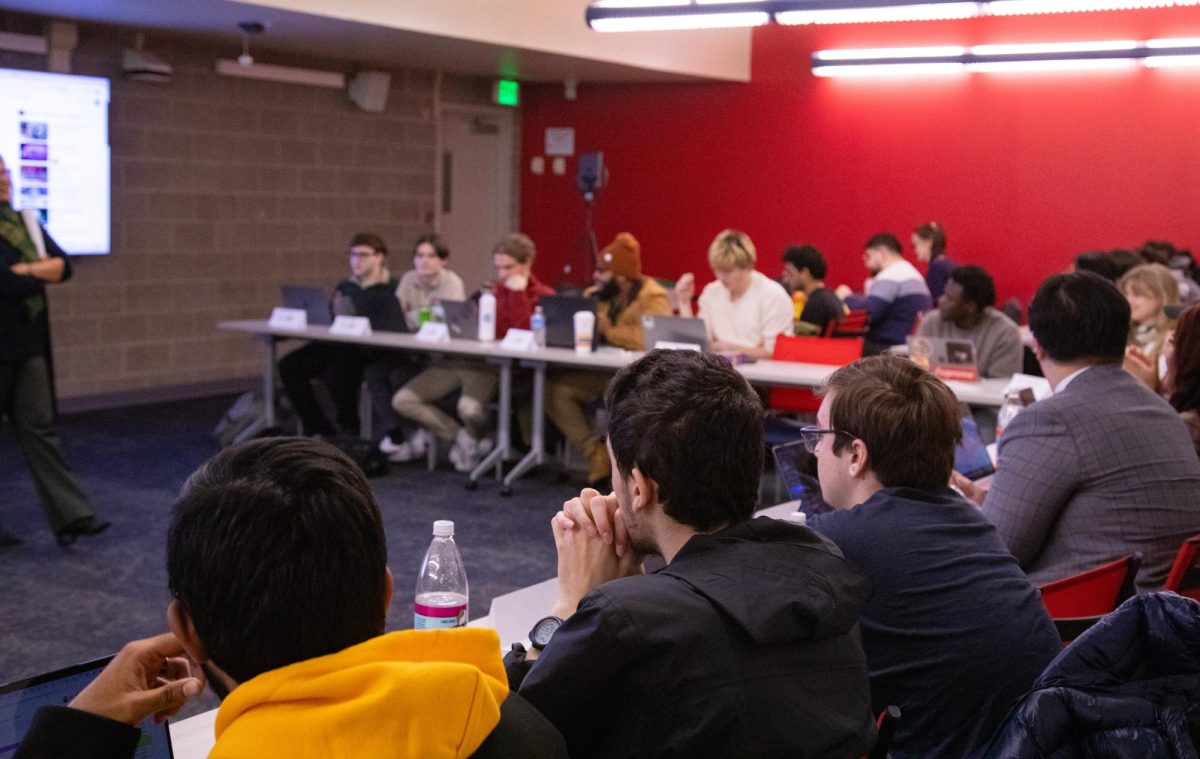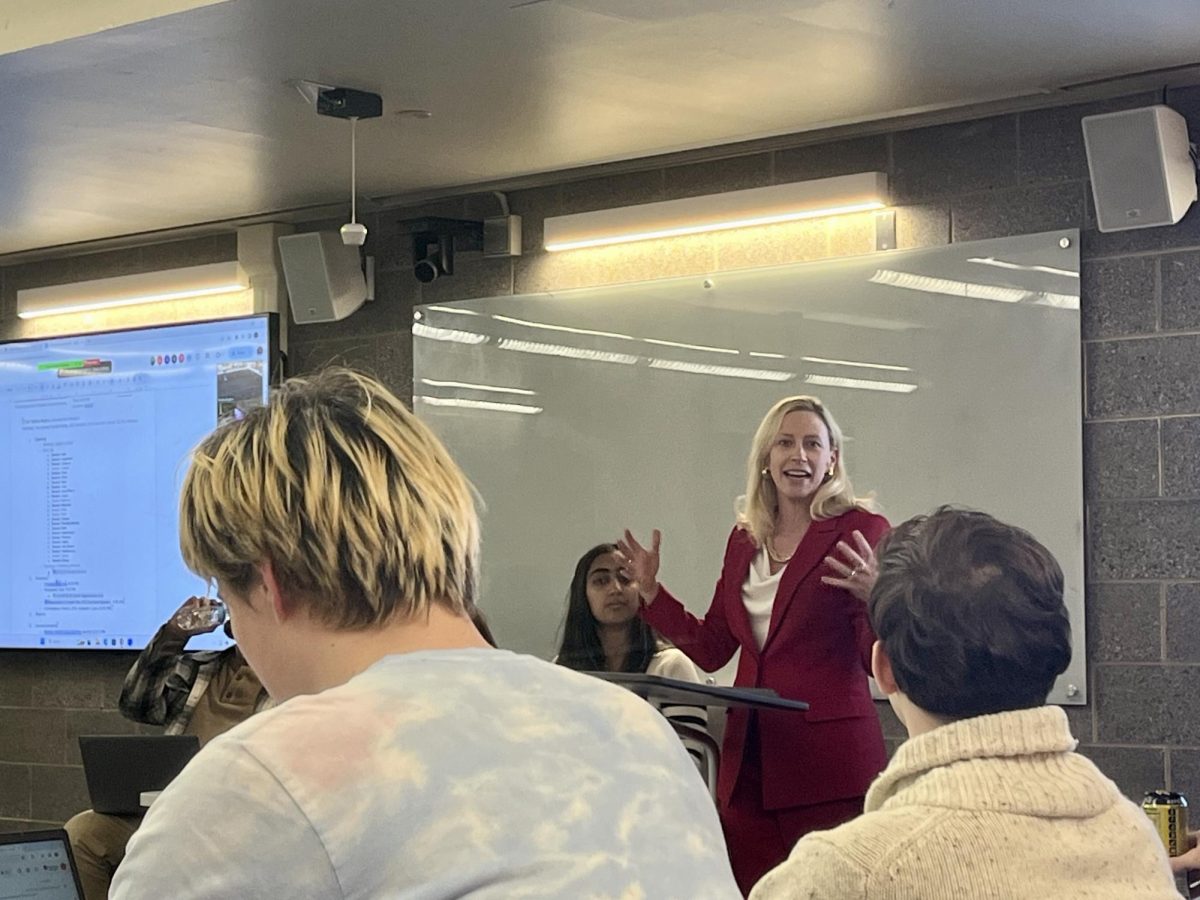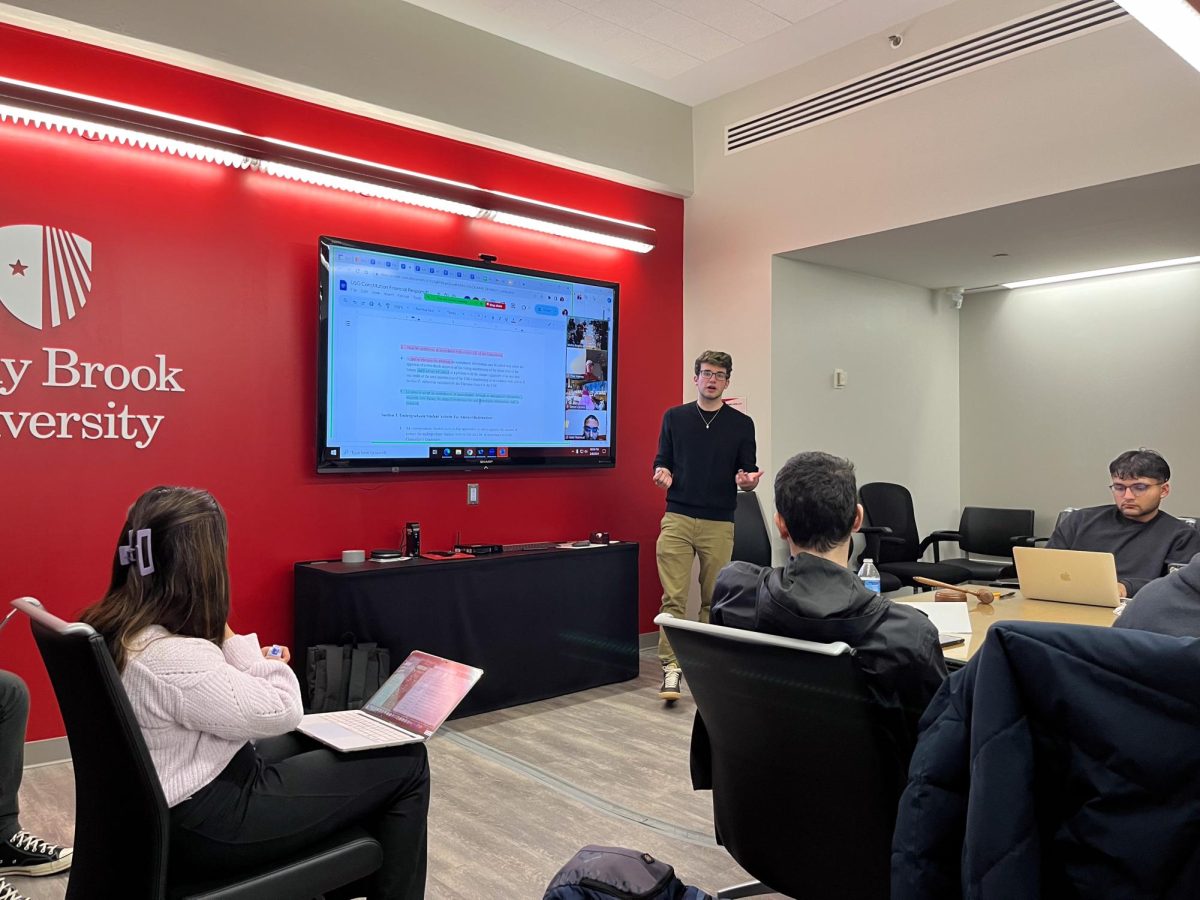
The Undergraduate Student Government (USG) has denied an amendment that was proposed to allow clubs and organizations to appeal the $40,000 budget cap that was approved in 2021.
When the budget cap was authorized, it came as a shock to clubs with a budget of more than $40,000 because they were not told beforehand about the change. According to the senate meeting minutes at the time of the decision, Manjot Singh, former USG president, was asked multiple times if the clubs were told about how it would affect them beforehand. Singh avoided the question.
“It’s frustrating for us as a club going from $118,000 at the time to then being cut to $40,000 [and] at the time we didn’t get any contact about when it was happening, why it happened. They just did it,” said Davin Van de Zilver, president of the Ice Hockey Club and a senior business major with a focus in finance and a minor in applied math.
Van de Zilver expressed frustration regarding the overall process that USG used.
“They really didn’t ask any questions why we get so much money and so it was really frustrating when it originally happened,” he continued, “I wish [there] was more outreach by the senators that are deciding [or voting on] the things that may affect the people.”
On April 27, the USG senate convened to discuss the financial bylaws amendment and ultimately voted not to pass the addition of the budget cap amendment that would have allowed clubs needing more than $40,000 a year to appeal to the senate with their justification. This proposal gave the clubs that were affected by the budget cap hope.
USG President Sowad Ocean Karim, a senior political science and biology major, feels that it was the right decision.
“The senate did have an overall good judgment in what needed to occur with the current amendment at hand, and leaving the work of the future of budget cap to the next senate,” Karim wrote in an email to The Statesman.
“I am personally in favor of the budget cap. I think, even though we should do our best to fund all clubs as much as we can, unfortunately given the current fiscal circumstances, I don’t see any way to get around because you [have] to keep in mind there is only so much money available,” Senator Yuchen Zhang said.
But Van de Zilver had hoped for a different outcome.
“We understand it’s not a guarantee to get over the $40,000 … but it gave us a little bit of hope that it’ll alleviate the pressure financially and the commitment to raise so much money,” he said.
Among the points that were brought up at the meeting was the fact that that most of the money went to sports clubs.
“There is only so much money available. If we were to give ice hockey $100,000 like [the amendment] suggests, that would essentially go back to the system before the budget cap where clubs can get virtually as much money as they want,” Zhang said.
However, Andrew Sabina, treasurer of the Black Student Union Club (BSU) and a senior history major, felt that the debate steered away from the original point.
“Their debate was pointless and didn’t further any other reasonable solution, or even posit a direction that a potential solution could go in,” Sabina said. “At the end of the day, there’s no debating whether or not, [sport clubs] require that money to function, it’s whether or not that money should be coming from the student activity fee,” he continued.
Erin Hwong, president of the Crew Club and a senior double major in biology and environmental studies, agrees with Sabina’s point that there should not be a debate on whether or not sports clubs need money to function.
“Each club has its own needs on what they need to stay active in the club,” she said. “I think that just in nature, sports clubs have to pay for spaces and equipment that tend to cost more … I think that might be why there’s a discrepancy between the sports clubs and other clubs.”
Another point that was brought up during the meeting was how much funding sports clubs get while also not having many members.
“I believe it’s unfair that many people’s student activities fee are going to organizations that represent only a small population or a small percentage of the student body that they’re getting their funding from,” Jay-Len McLean, president of BSU and a junior double major in international relations and Africana studies, said.
Zhang agreed by explaining that, “with ice hockey in particular … it’s an exorbitant club. It’s just too expensive to afford and unfortunately they’re also closed membership which means that all of the $100,000 given to them before the budget cap benefits way too few people.”
However, Van de Zilver disagrees by how sports clubs are viewed as closed membership and non inclusive.
“For them to say we’re a closed club is just not true at all … we’re open to anybody coming and we’ll find a position for you to enjoy the club in a capacity that we also do,” he said. “It’s [also] frustrating that it’s always ‘oh, they’re not inclusive’ ‘oh, they have off campus events, those don’t count.’ Because they do count. We are trying to be inclusive, but [students and the people representing the senate and USG] keep labeling us as a non inclusive club. I think if that word gets around, then why would someone want to come and try and join the hockey club… whether it be in a playing fashion or in a non planned fashion as well?”
Scott Barnikow, treasurer of the Ice Hockey Club and a sophomore business management major also believes that there’s more to the club than just competing.
“Being a part of the hockey club doesn’t mean playing on the ice. It’s also going into the games and supporting your college,” he said. “I’ve talked to fans and other college students at different colleges and that’s one of their favorite parts about the hockey team. It’s not about being a part of it or playing, it’s about being able to enjoy and support the university.”
The Ice Hockey Club was affected by the budget cap the most — as their funds were cut from $114,975 to $40,000 — and is worried about how it will continue funding the sport.
“The $40,000 that we have doesn’t even scratch the surface [of our ice rental fee which] is upwards of $75,000 per year and that’s not something we can work around,” Barnikow said.
Van de Zilver explained that “it’s going to be very difficult to continue getting people to come … We’re lucky enough where we’ve been the past year. We’ve been very supported by alumni, the local businesses and local people that are donating and giving back to us but we can’t guarantee that every year,” he said.
He also explains the ways they try to save money.
“We’re not spending money just to spend money … We’re putting four guys in a hotel room when we’re having an overnight trip. We’re driving through the night so we don’t have to spend more money on a hotel. We try to minimize costs along the way,” he said.
The idea of the budget cap and cutting funds from clubs receiving more than the cap was to reallocate that money to clubs and organizations that have been underfunded.
However, some people believe that the system itself is flawed because the clubs that have gotten the reallocated money have not been using it.
“Our budget gets cut but then we see the money being allocated towards other clubs that don’t use up that budget,” Hwong said.
The Ice Hockey Club made a spreadsheet where they took the line budget from USG of all the clubs expenditures and created their own budget comparing what they were allocated, what was spent, and what money was leftover and given back to USG.
“Last year 127 clubs were allocated money, 94 of those clubs didn’t spend their whole budget. That year [$155,000] was given back to USG by clubs and then 56 of those clubs were granted even more money this year out of those 94 that didn’t spend everything,” Van de Zilver said.
Some believe that these issues are not being handled correctly by the senate and that there is an imbalance in power between who gets to make the decisions.
“I believe that if the senate isn’t comprised of overly bureaucratic and lazy careerist students, that something can be done in a form where an actual debate occurs,” Sabina said.
“The senate ultimately really doesn’t have much control over the executive council and the executive council has no control over the senate so there’s a lack of accountability that’s there,” McLean said.
However, Van de Zilver feels that the issue is the process.
“I don’t blame this on the people … I blame it on the process that goes on. It’s very tough for only the senators to be in charge of 127 different clubs and then have to decide on their budget individually,” he said.
Correction, 6/24/23: A previous version of this article incorrectly listed USG President Sowad Ocean Karim as a junior instead of a senior.

















